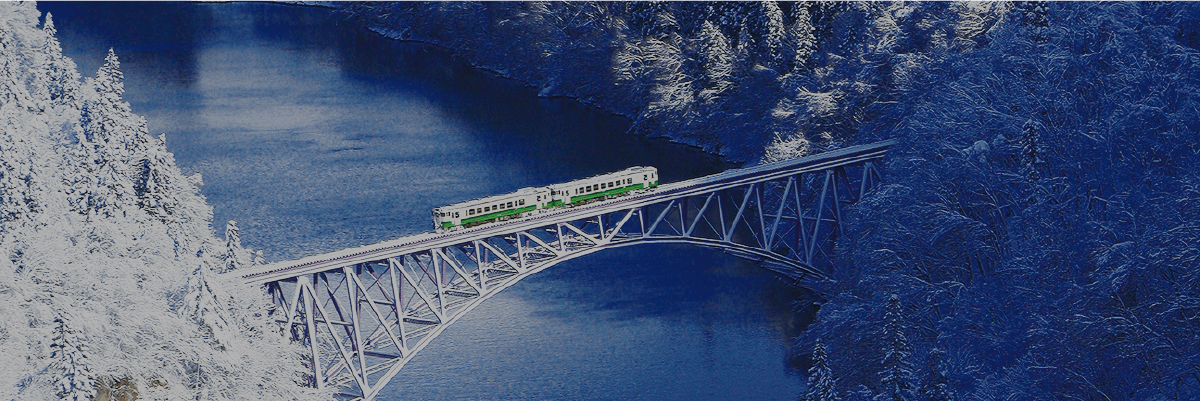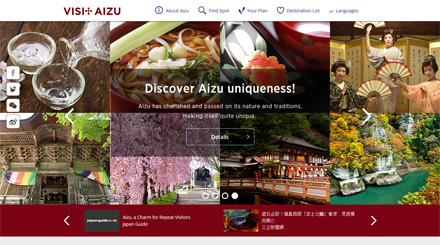Access to Aizu
Aizu consists of 17 distinctive municipalities. For the purpose of including general regional / location images, we have separated the entire Aizu area into five parts: the central area, eastern area, western area, southern area, and northern area.
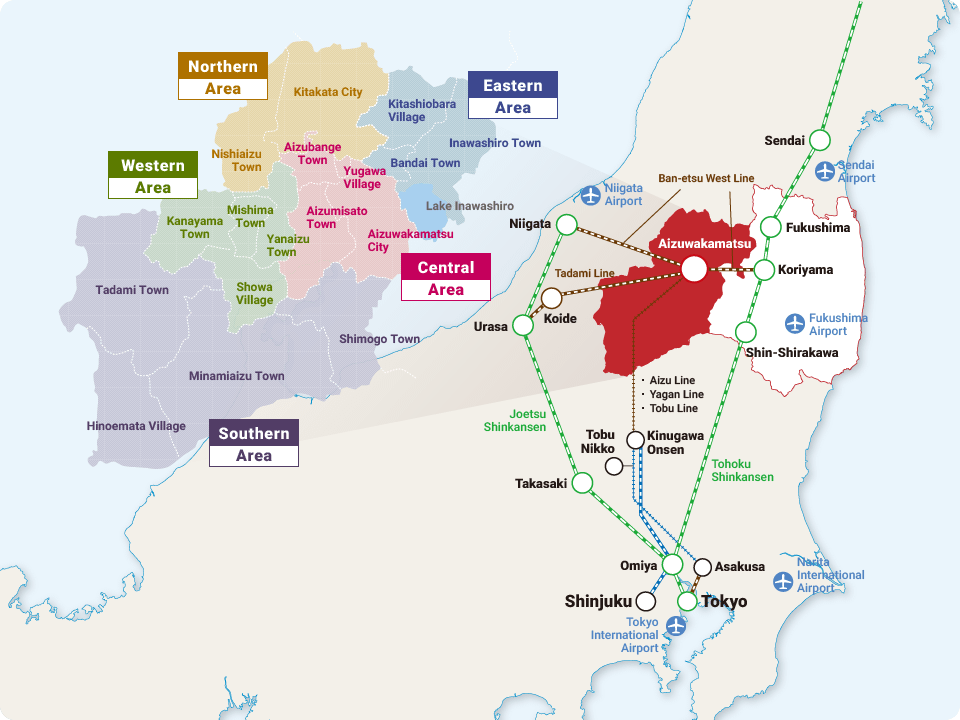
By Shinkansen
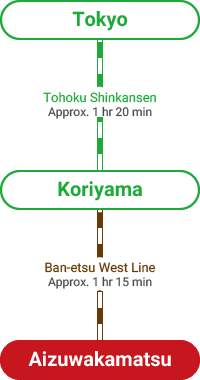
By Railway
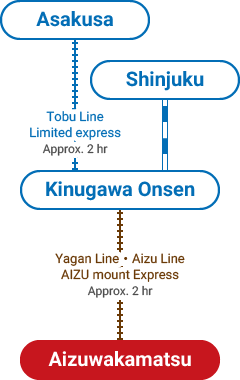
By Highway Bus
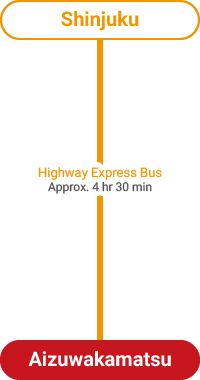
Tokyo International Airport
Narita International Airport
By Railway
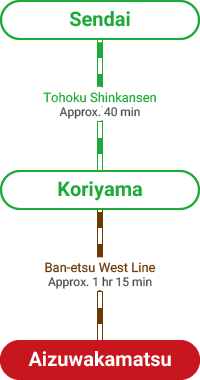
By Highway Bus
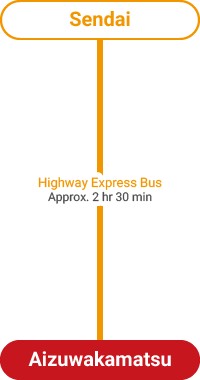
Sendai Airport
By Railway
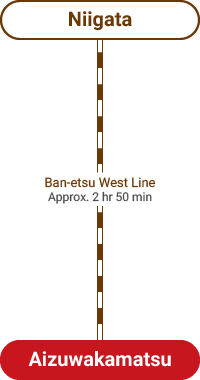
By Highway Bus
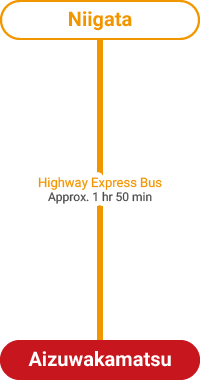
Niigata Airport
By Highway Bus
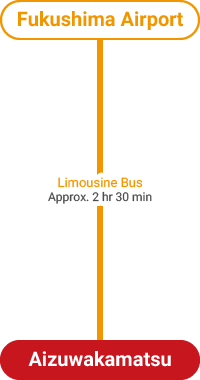
By Taxi
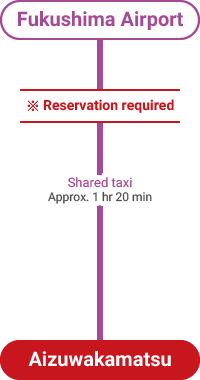
Multilingual sightseeing information
Municipal Tourist Information Site
Central Area
Aizuwakamatsu City
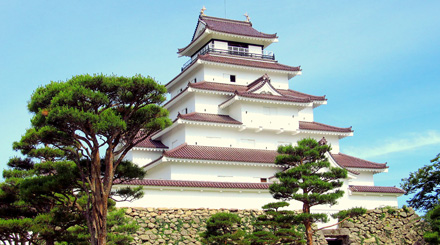
Aizuwakamatsu City is a castle town where many sights and historical spots, including the red-tiled Tsurugajo Castle and the Oyakuen Medicinal Herb Garden, still remain. The city is famous for its traditional craft items, including Aizu lacquerware and Aizu momen cotton. It is also famous for Higashiyama Onsen Village, located along a natural mountain stream, and Ashinomaki Onsen Village, surrounded by a beautiful valley.
Aizumisato Town
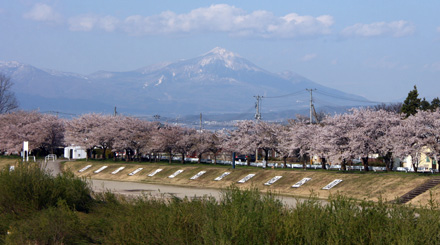
Aizumisato Town is home to the historic shrines and temples, including Isasumi shrine, which has existed since the area became known as “Aizu”, and the beautiful three-storied Hoyoji Temple. The town is famous for its local products, including Aizu Hongo-yaki pottery and Takada Plum products.
Aizubange Town
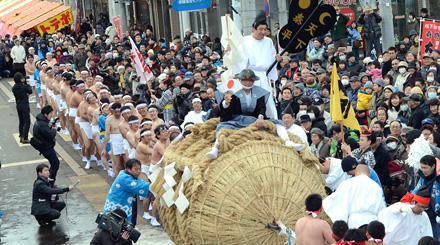
Aizubange Town is a historical town, home to the Senju Kannon statue (a Nationally Designated Important Cultural Property) and the Kamiunaiyakushi statue, as well as the tomb of Nakano Takeko, a member of the women’s squad that fought and died in the Boshin Civil War. In the past, the area was known for the sale of horses, establishing a horse based cuisine. Basashi, or raw horse meat, is one of the area’s specialties.
Yugawa Village
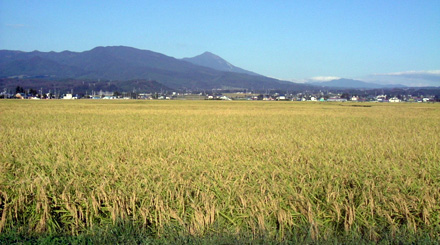
Yugawa Village is nestled in the beautiful countryside, facing Aizu’s Mt. Bandai. It is the home of Koshihikari brand rice. At the heart of the village stands Shojoji Temple, a temple founded over 1,200 years ago that has come to symbolize the Tohoku area. The statue there has been designated a national treasure.
Eastern Area
Inawashiro Town
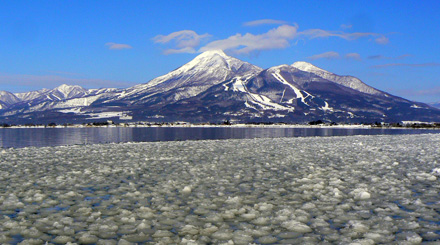
Inawashiro Town is a symbol of Fukushima prefecture; a scenic tourist spot featuring Mt. Bandai and Lake Inawashiro. In the summer, you can enjoy climbing the mountains and swimming in the lake. In winter, you can enjoy skiing and snowboarding; various sports activities are available all year round. Inawashiro is also one of the nation’s leading producers of soba.
Bandai Town
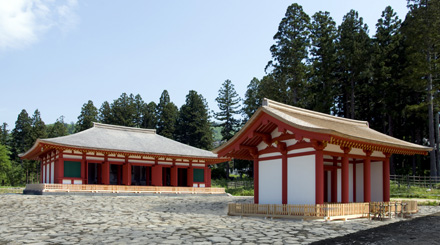
Bandai Town is home to “Enichiji Temple”, the oldest temple in the Tohoku region. In recent years, the main hall and stone plaza of the temple have been restored, creating an atmosphere reminiscent of ancient times. There are also plenty of activities, including golf and skiing, available.
Kitashiobara Village
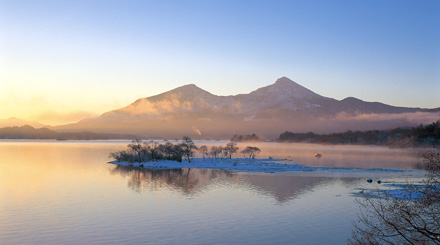
Kitashiobara Village features magnificent natural scenery, including a number of lakes and the landscape transformed by the eruption of Mt. Bandai. In summer, you can enjoy trekking and the marshland vegetation. In winter, there is skiing and ice fishing available.
Western Area
Yanaizu Town
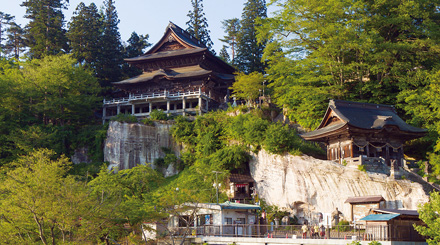
Yanaizu Town is a Buddhist temple town with over 1,200 years of history. The inns that line the Tadami River were once lodging for Buddhist pilgrims. The local specialty awamanju (made from millet and mochi) is well known.
Mishima Town
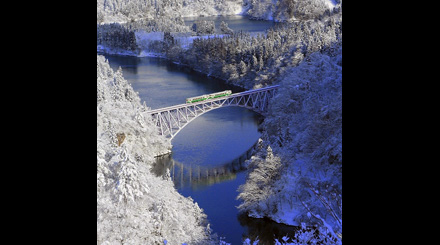
Mishima Town has long been known as a production center for Aizu paulownia wood. To this day, paulownia products are still produced by local craftsmen. Enjoy the scene of the valley and the railways in all four seasons; The "Daichi Tadami River Bridge View Point" is also a popular photo spot for foreign-nationals.
Showa Village
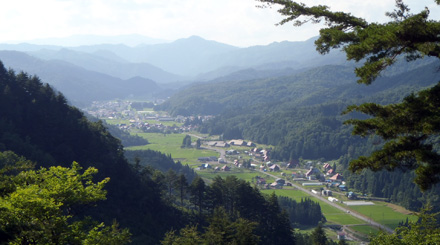
Showa Village is home to traditional karamushi weaving- visitors can even try weaving themselves at the “Michi-no-Eki Karamushi Ori no Sato Showa” Roadside station. The skunk cabbages in spring and the foliage of the Yanohara marshlands in autumn are highly recommended.
Kaneyama Town
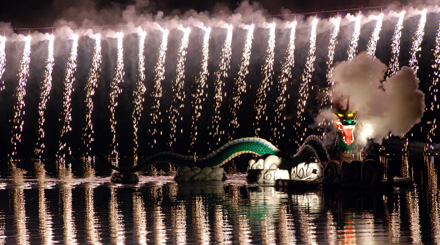
The town of Kaneyama features a landscape that has not changed since ancient Japan, featuring mysterious lakes and the calmly flowing Tadami River. It is also blessed with an abundance of hot springs featuring plenty of naturally sourced springs.
Southern Area
Shimogo Town
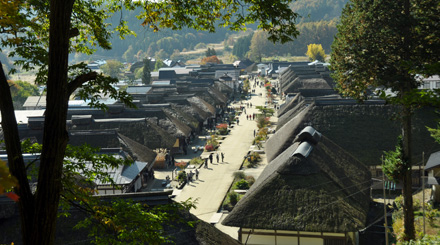
Shimogo Town is home to the famous Ouchijuku, a former post town which has been restored to look as it did in the Edo Period. Enjoy the unique experience of the secret onsen along the river in Yunokami Onsen, or Yunokami Onsen Station, which features a rare, thatched roof.
Minamiaizu Town
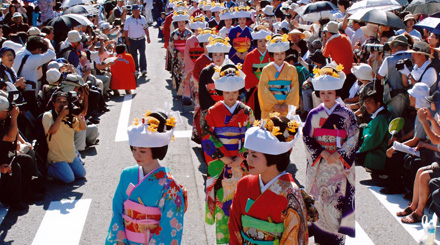
Minamiaizu Town is a town situated in the heart of nature, featuring over 2000 meters of mountains, calm streams, and the Miyatoko Marshlands, where visitors can stroll and enjoy the native plants. The town is a modern day ancient village, and home to Maesawa Shuraku collective residence, as well as a treasure trove of secluded onsen including the famous Yunohana Onsen and Tokusa Onsen.
Tadami Town
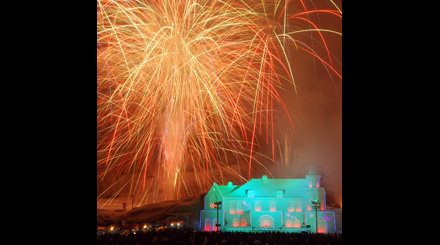
Tadami Town is s a beautiful "capital of nature" located in the snowiest region of Japan where the harsh natural environment creates a beautiful landscape in all four seasons. Tadami is home to a wild beech forest which is unparalleled throughout the country; from spring to autumn, visitors can enjoy the beech trees and clear mountain streams.
Hinoemata Village
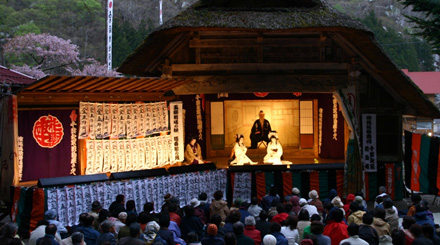
A unique mountain village culture has been preserved in Hinoemata Village, where the legend of the Heike Ochudo still lingers. Traditions including Hinoemata Kabuki and Yamamoto cuisine have existed here for more than 270 years. Hinoemata also served as the Fukushima entrance to Oze, a nationally recognized wetland preserve.
Northern Area
Kitakata City
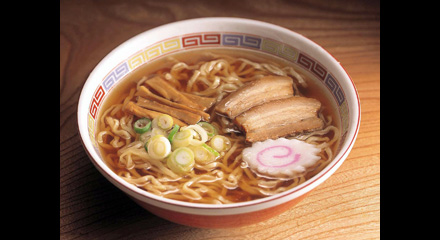
Kitakata City is famous throughout the country as one of the “eminent ramen cities”. Many ramen shops are even open in the morning. There are also more than 4,200 Historical Storehouses located throughout the city; walking around the center of Kitakata, visitors can experience the aura of old Japan.
Nishiaizu Town
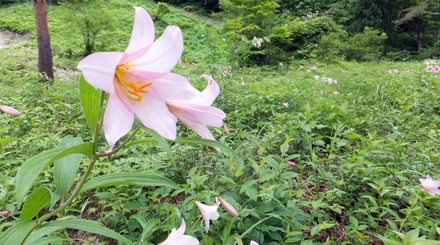
The town of Nishiaizu is a long standing spiritual landmark in Aizu, including Oyamazumi Shrine (famous for the “Nozawa Mountain God”), and the 1,200 year old Torioi Kannon Nyohouji Temple, said to have ben founded by Tokuichi, the father of Aizu Buddhism. The local agricultural products including wild vegetables and specialties such as miso ramen are also highly recommended.

